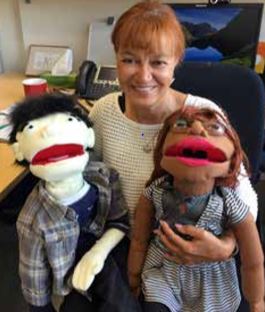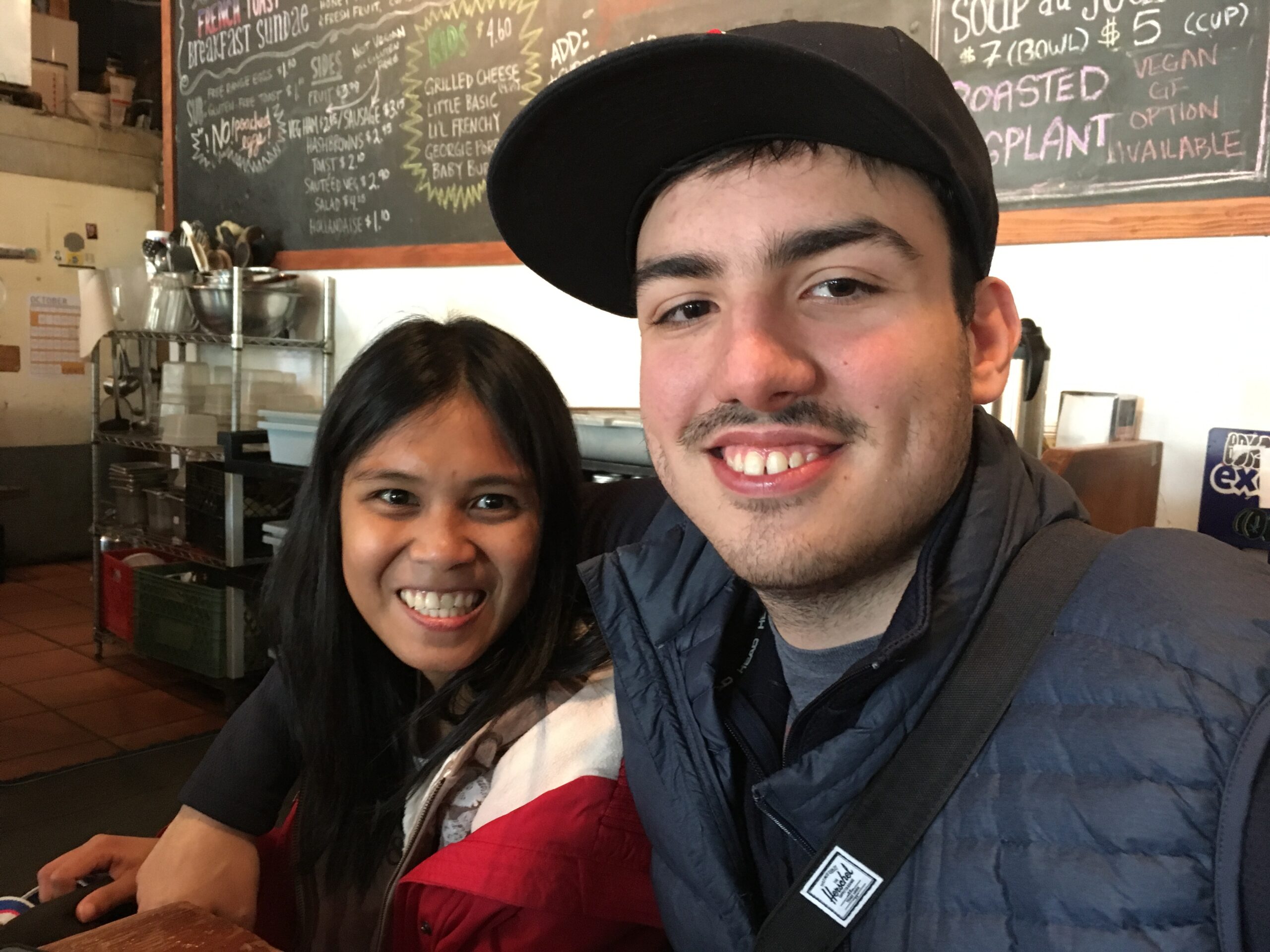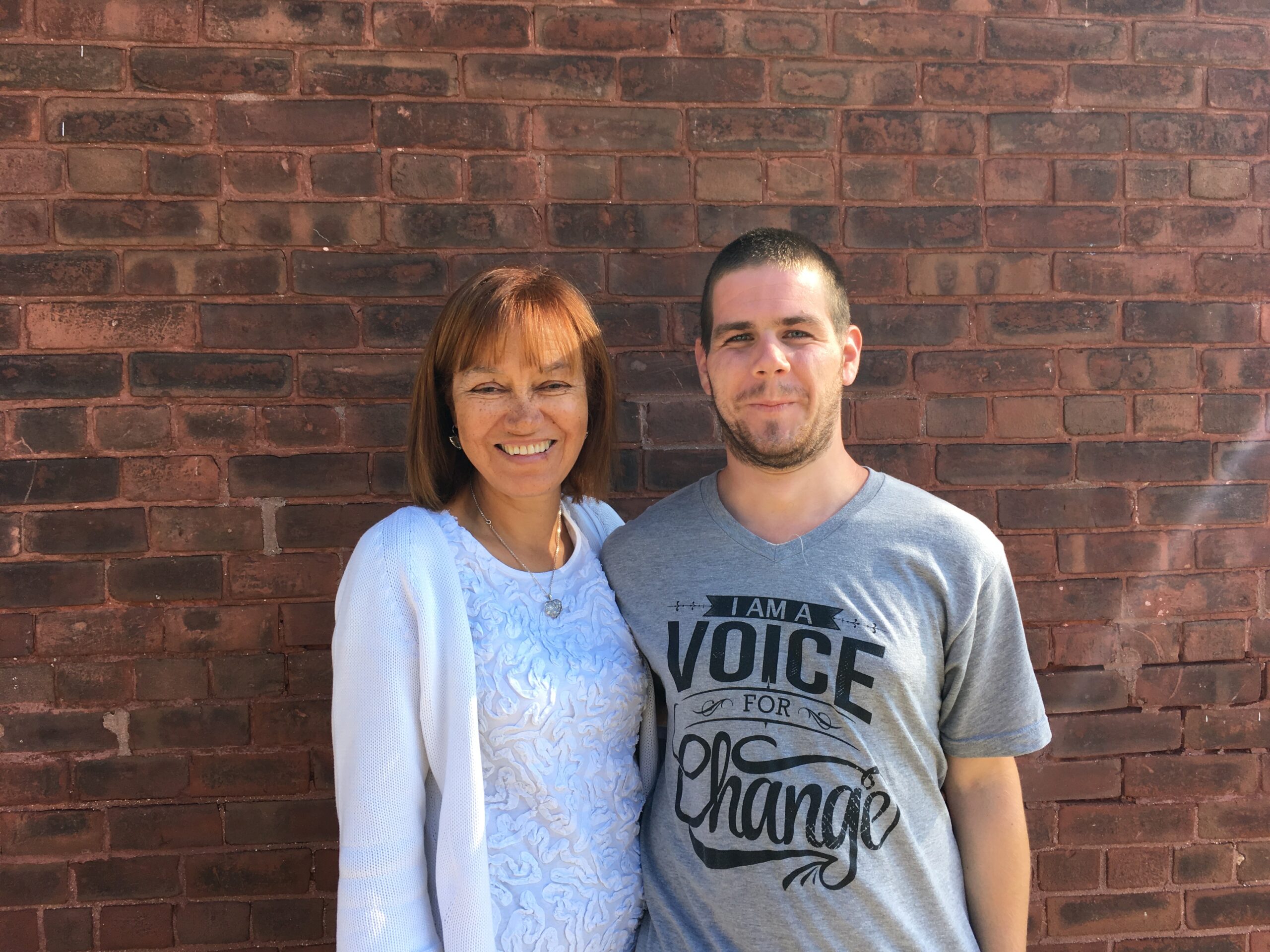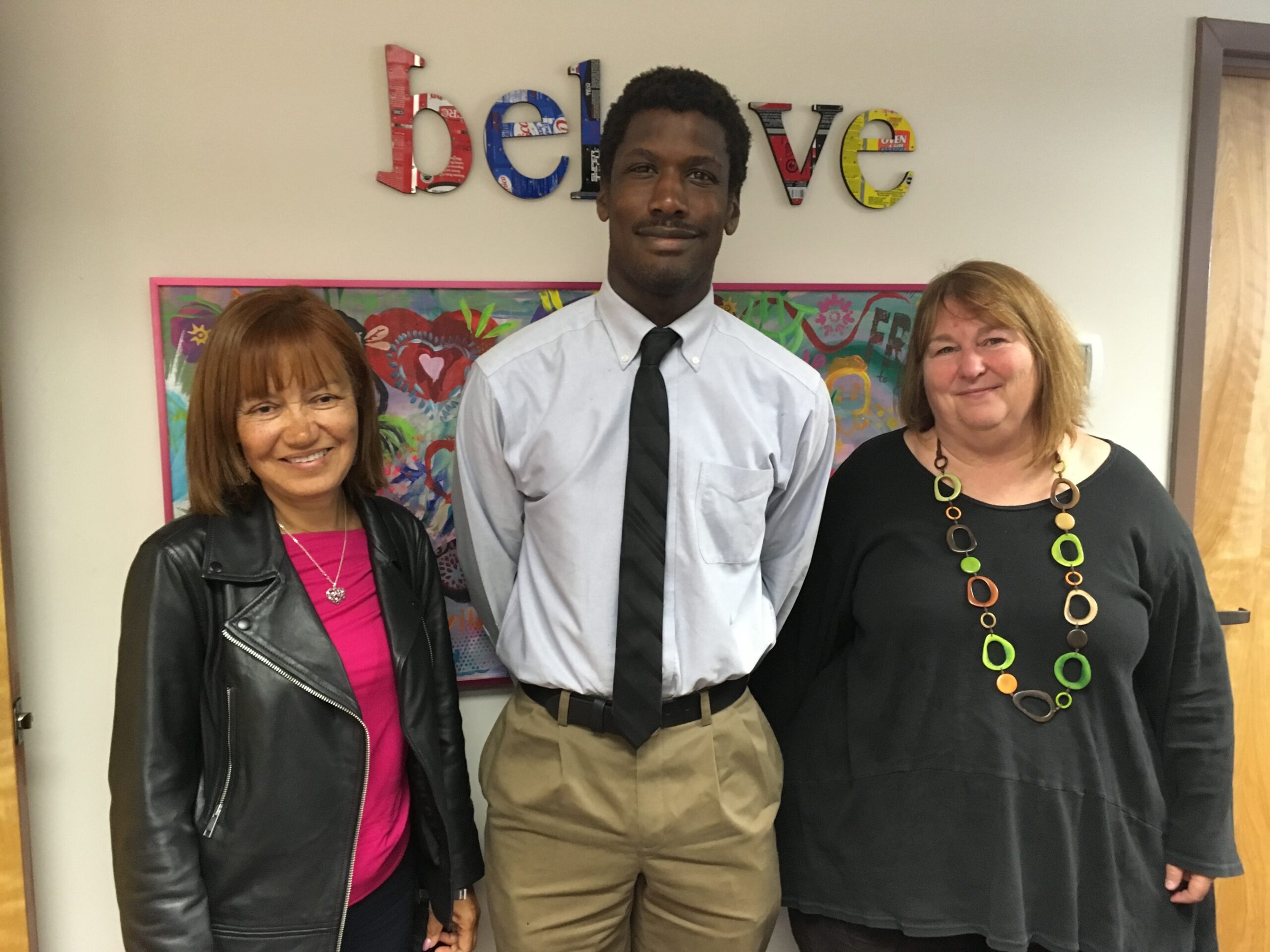The words “travel” and “study” can make a harmonious combination, bringing together the benefits of stepping into another world along with the excitement of exploring different perspectives and practices.
This sentiment lies at the heart of the work of the Winston Churchill Memorial Trust, which bestows fellowship grants to UK residents to enable them to embark on international learning. The deal is that, having collected ideas and information, travellers will “return to inspire”, sharing the knowledge gained in their communities of interest to influence change.
As a proud and fortunate recipient of a Churchill fellowship, in September 2019, I started a six-week study tour taking in areas of New England in the US and travelling from the east to the west coast of Canada. I had arranged to visit people and organisations who could shine light on the question: “What can we do to reduce sexual harm to adults with a learning disability?”
High risk of abuse
This was motivated by the shocking reality that in the UK adults with a learning disability are four times more likely to be sexually abused than other citizens (Mencap, 2001) and by personal experience of a reactive, risk-averse safeguarding system.
One of the first comments I came across in relation to the sexual assault of people with learning disability was by Pennsylvania state official Nancy Thaler, who said: “If this were any other population, the world would be up in arms.” I knew then I was in the right place. Here I was going to find people

who, despite differences from the UK regarding political, economic and service systems, were driven by similar outrage, with a thirst to address the statistics.My wider fellowship findings and recommendations are available in the Love Care:fully report (see end of article). Here, I focus on some of the inspiring individuals I met to illustrate the advocacy-related learning that might motivate others.
Some of you may have heard of Barb Goode, as she is internationally famous as one of the founders of the self-advocacy movement. She is also well known in Canada for her significant role in the 1986 “Eve case”, in which the supreme court of Canada ruled that neither Eve, a young woman with intellectual disability, nor anyone else should be sterilised without their consent, unless there was a medical reason. Goode told me this story in a humble, matter-of-fact manner, belying the impact her voice had had in the highest court in the land.
Responding to the inhumanity of losing control over what happens to one’s body and fertility paved the way for a lifetime of fighting against discrimination and for social justice on behalf of herself and her peers. In our conversation, she was keen to stress the importance of having accurate information, in plain English, so people could understand the benefits and risks of actions proposed, alongside having recourse to legal action if necessary. This message continued in discussions with other self-advocates, notably Max Barrows, who I met at his workplace – Green Mountain Self Advocates in Vermont in the US. Barrows is a national leader in the sexual self-advocacy movement, a concept I was keen to explore.
While some self-advocacy groups and individual self-advocates in the UK, with their allies, have worked hard to raise awareness of the importance of opportunities for intimate relationships, this has not been transformed into a joined-up national strategy.
Barrows explained that sexual selfadvocacy merges the principles of self-advocacy with a commitment to ensuring people’s sexual rights are upheld, through campaigning, training and debate. His group, with others, have become specialists in this area, feeding into and supported by Self-Advocates Becoming Empowered (SABE), a national organisation and their technical assistance projects. Sexual self-advocacy has a set of evidence-based principles (Sandman et al, 2014) and teaching practices related to choice, respect, rights, communication and knowledge.
In Barrows’ words, it means that “when someone is in a relationship, they can use the skills of speaking up, like being able to give consent and recognise abuse, but they can also speak out so that other people have the same opportunities”. With colleagues, Barrows has been involved in the design and delivery of training packs for self-advocates and staff. In his experience, fighting for sexual rights is the most difficult aspect of self-advocacy because of disproportionate opposition from support workers, family members and others.
In addition, he echoed the commonly held view that talking about sex and love in the same breath as learning disability is the last taboo in the world of service provision. There was also Thomas Caswell, another Vermont-based self-advocate, who eloquently described his experience of being gay and autistic as “coming out twice”; he has written informative and supportive guidance about this (https:// tinyurl.com/caswell-guide).

Randy Lizotte in Vermont, employed by a provider organisation, demonstrated his skills in delivering a session on assertive communication and consent.
I met the Right2Love group in Calgary, who campaign for healthy sexuality and education for everyone who talked about how they had changed provincial policies. Like many of the groups I met, they were generally more militant than their UK counterparts, having taken to the streets with placards to raise awareness, relentlessly lobbying politicians and calling for approaches they referred to as “radical”.
In Vancouver, I learned about Real Talk, whose members were making and sharing video conversations about dating, love, relationships and sex and visited the Let’s Get Real community, who practise ordinary conversations about relationships in everyday settings of the type that you might have down the pub with your mates.
I was inspired by sexual self-advocacy ally Mandy Doyle in Boston. With antiabuse organisation Impact:Ability, she has designed a self-defence programme that incorporates self-esteem, assertiveness and sexual awareness, and aims to enable people to recognise and address potential abuse.
I witnessed many examples of collaboration, sometimes across untraditional boundaries, such as between rape crisis and transport services. It was striking to find leaders in the statutory sector, such as Pat Carney in Massachusetts, who works with the state’s adult protection service to coordinate a whole-system approach to preventive education. Whether through individual or shared effort, these examples demonstrate a grassroots groundswell of commitment to changing perceptions and opportunities, with a supported, perceptible unity of purpose that makes it feel like a movement.
Many people spoke of the need to fight the continued prejudices and injustices associated with trying to have relationships, while being able to cite local and national groups or activities that were acting as vehicles for change. Arguably, sexual self-advocacy is nothing new – perhaps it is the younger cousin of the more academic concept of “intimate citizenship” (Ignagni et al, 2016).
There are certainly people in the UK from a wide range of backgrounds who are working tirelessly to raise awareness about the importance of love, sex and relationships and their impact on individual wellbeing, notably through organisations such as Supported Loving.
There are also a growing number of self-advocacy groups which have undertaken relationships and sexuality training and research, as well as providing useful and informative resources. Sexual self-advocacy benefits from its birth within the self -advocacy movement, its evidence base and an accessible framework.

Bringing findings back home
So how might these pioneering North American practices translate to the UK?
Sexual self-advocacy perhaps names and frames an existing rumble of discontent among self-advocates and allies in this country, which might be enhanced and informed by the voices and experiences of our transatlantic colleagues.
Theirs are inspiring, practical actions designed to challenge and redress inequalities. They come from a place of shared injustice, which has developed into a subset of the self-advocacy movement working to champion sexual rights. Reflecting on what can be learned from the exceptionally generous people who welcomed me into their world for a short time, they have a strong commonality of purpose that transcends the vast spaces, different terrains and increasingly polarised political landscape in which they operate.
One of the binding forces seems to be a focus on proactive, preventive safeguarding measures, with shared value-based principles. I heard and saw more references to person-centred planning than I have for some time in the UK. I was heartened to listen to self-advocates explaining the relevance of trauma-informed support to service quality and, specifically, to teaching about sex and relationships.
So for sexual self-advocacy to thrive, there needs to be a continued focus on organisational culture, alongside provision of skills-based tools and practical resources. To test whether this resonates in the UK, I plan to work with already vociferous self-advocates in Lancashire to co-design a trauma-informed sexual rights information and training pack, which will be made available to champion and challenge nationally.
This may not result in a figurative call to arms but, hopefully, will contribute to a movement to address sexual safety and empowerment, areas that Max Barrows referred to wistfully as “the hardest of advocacy nuts to crack”.
● Love Care:fully. Sexual Safety for Adults with a Learning Disability. Lessons from Canada and the USA; https://tinyurl.com/ yyc6cq4b
Sue Sharples is a retired social worker and provider chief executive, and now works as a trainer, campaigner, advocacy ally and member of Supported Loving
References
Mencap, Respond, Voice UK (2001) Behind Closed Doors: Preventing Sexual Abuse Against Adults with a Learning Disability
Sandman L, Arnold K, Bolyanatz L, Friedman C, Saunders C, Wickey T (2014) In my Voice: Sexual Self-advocacy. Chicago: University of Illinois. https://tinyurl.com/yyzulfxj
Ignagni E, Fudge Schormans A, Liddard K, Runswick-Cole K (2016) “Some people are not allowed to love”: intimate citizenship in the lives of people labelled with intellectual disabilities. Disability and Society; 31(1): 131-5. https://tinyurl.com/y4fzabmo
